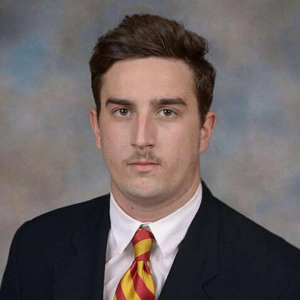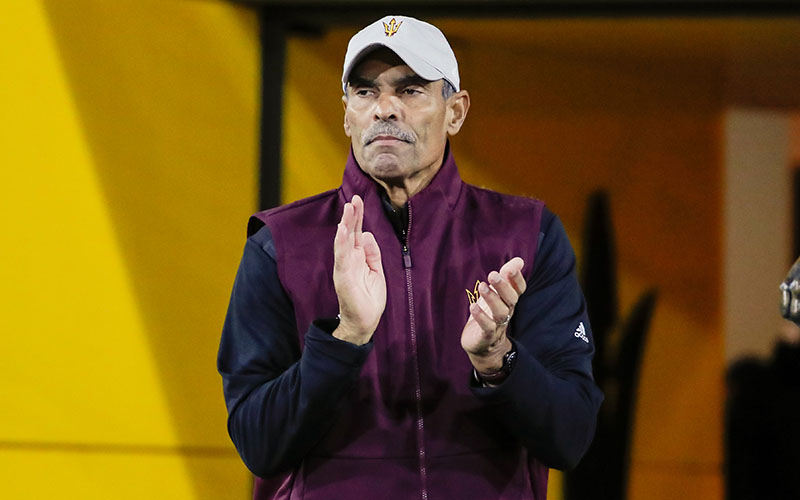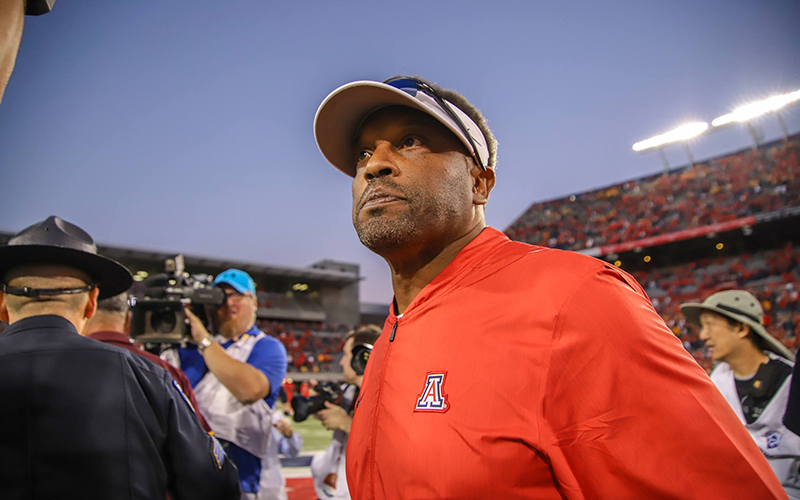LOS ANGELES – When Herm Edwards accepted the head coaching job with the New York Jets in 2001, he became the third Black coach in the NFL that year, joining the ranks of Minnesota’s Dennis Green and Tampa Bay’s Tony Dungy.
Nineteen years have passed, and the number of Black head coaches in America’s favorite league still is three.
The lack of diversity is consistent with the NFL’s main source of talent, Power 5 college football programs. An Arizona State Global Sports Institute study released in September found that just 22% of top Power 5 football jobs in a 10-year period went to members of minority groups, even though their white counterparts had less playing and coaching experience.
“When these numbers come out, I just say, ‘We got to do better,'” Edwards, who has helmed ASU football since December 2017, told reporters last week during a Pac-12 coaches’ news conference. College football, he said, “needs to do better. The NFL needs to do better, but not only as coaches, but in positions of authority, people that get to make the decisions.”
Edwards also said he thought the “Pac-12 conference has done an outstanding job.”
When it comes to hiring football head coaches, the Pac-12 and Big Ten are the leaders in diversity, the study found. The Pac-12 has five of the 11 Black coaches at Power 5 programs – Edwards, UArizona’s Kevin Sumlin, Colorado’s Karl Dorrell, Washington’s Jimmy Lake and Stanford’s David Shaw – and the Big Ten has four. The Southeastern and Atlantic Coast conferences have one each; the Big 12 has none.
The ASU study found that this is not just a problem now, but has been for a long time. Out of the 65 teams in Power 5 conferences, only 39% have ever hired a coach of color.
The Pac-12, meanwhile, has been a trailblazer when it comes to diversity, not only on the field but in the office as well. Out of 12 athletic directors, five are not white men: ASU’s Ray Anderson, Stanford’s Bernard Muir, UCLA’s Dan Guerrero, Washington’s Jen Cohen and Washington State’s Pat Chun.
“To know that going into this conference, to have the coaches we have, the minority coaches in this conference,” said Dorrell, who was brought on board by Colorado in February. “And really, there’s no other conference like it. I’m extremely proud of that. I really am.”
Lake at Washington believes that it starts at the bottom and coaches of color should be considered for other coaching positions to help build the foundation for Black coaches in the NCAA.
“The first thing we have to do is we have to get more coordinators, defensive coordinators and offensive coordinators of color, across the country,” said Lake, who was hired by the Huskies last December. “And as soon as we get to that model, I think you’ll start to see more candidates that can go and interview for head jobs and be successful.”
The issue of equal opportunity among minorities is a matter that has been center stage in 2020; a topic that was a large part of the NBA bubble and the start of the NFL season. Players and coaches across the country have been in this conversation, and many don’t need studies to reveal what’s already so familiar to them.
“I mean that’s just where it is,” Sumlin, who has been at the helm of UArizona since January 2018, said, “and this has been talked about for years, so I don’t think there had to be any kind of study, or statistical proof that people don’t know. And you know that has been just like some of the things that we’ve experienced as a country, over the last six, seven months.”



